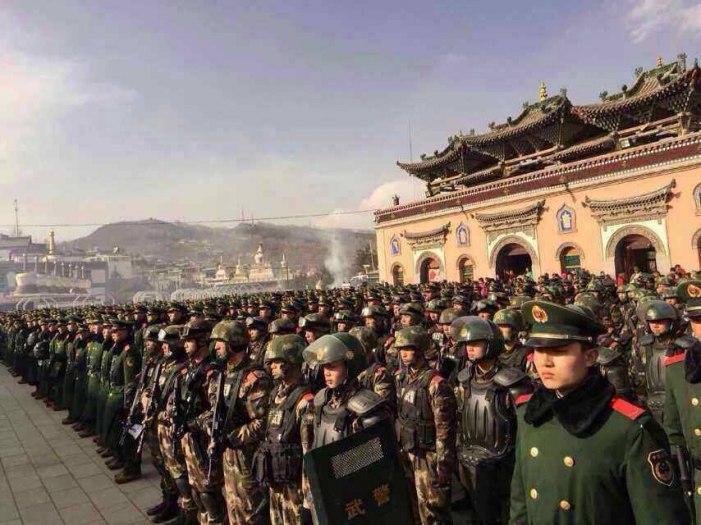Tibetet Segítő Társaság Sambhala Tibet Központ
Tibet Support Association Sambhala Tibet Center
székhely / telephely H-Budapest I. Attila út 123..
(00-36) 70 431 9343 (00-36)70 944 0260 (06-1)782 7721
sambhala@tibet.hu www.tibet.hu tibetpress.info
Facebook/Sambhala Tibet Központ Facebook/Tibett Segítő Társaság
MagnetBank/ 16200010-00110240
IBAN/HU94 16200010 00110240 00000000 SWIFT/HBWEHUHB
(1%) adószám/ 18061347-1-41
nyitva tartás/hétköznap 12.00-20.00 hétvégén előadás függő
» Retro» Tibeti művészet» Interjú» Levelek» Tibet Press» Tibet Press English» Dharma Press» Human Rights» Világ» Kína» Magyar» Ujgur» Belső-Mongólia » KőrösiCsoma» Élettér» Határozatok» Nyilatkozatok» tibeti művészet» lapszemle.hu» thetibetpost.com» eastinfo.hu» rangzen.net» ChoegyalTenzin» tibet.net» phayul.com» DalaiLama.com» vilaghelyzete.blogspot.com» Videók» Linkek» TibetiHírek» Szerkesztőség
Emberi jogok Tibetben
2020. január 10./Freetibet.org/TibetPress
Jelenleg csak angolul olvasható. Magyarul később.
eredeti cikk
For the last 3 years in a row, US think-tank Freedom House ranked Tibet among the worst places in the world for the denial of freedom.
Every aspect of Tibetan life is under siege.
Tibetans have even fewer civil and political rights than Chinese people also ruled by the Chinese Communist Party.
The Chinese government enforces its control on Tibet through the threat and use of arbitrary detentions and punishments, at times including severe violence. Any act deemed to threaten its rule can be made a criminal offence.
Here are just some of the challenges faced by Tibetans as a result of China's occupation:
POLITICAL OPPRESSION AND VIOLENCE
Tibetans face intense surveillance in their daily lives, with security cameras, police checkpoints and party officials monitoring their movements and activities.
Peaceful protests are suppressed with severe violence. Protesters are imprisoned, tortured and may even be shot.
China has repeatedly violated UN conventions through extensive use of torture against Tibetan political prisoners.
Prisons in Tibet are full of people detained for simply expressing their desire for freedom. They are arrested and convicted for peaceful acts, such as waving the Tibetan flag, calling for the return of the Dalai Lama and sending information about events in Tibet abroad.
Many Tibetans are imprisoned on unclear or unspecified charges, their families not informed of their whereabouts. They are denied access to proper legal support and face trials that do not respect international standards of justice.
Tibetans charged with "separatism" (acts intended to divide or damage the Chinese state) can face sentences up to and including the death penalty.
Even children face abuses of their freedom and human rights.
CULTURAL AND RELIGIOUS SUPPRESSION
The Tibetan flag and national anthem are banned.
Tibetan Buddhism is seen as a threat to the occupying Chinese state and possessing Dalai Lama images or teachings can result in imprisonment and torture.
Chinese officials closely monitor and control religious activity at monasteries and nunneries.
Since 2016, Larung Gar – the biggest Buddhist institute in Tibet, and indeed in the world – has been the target of a major assault. Thousands of individuals have been evicted and thousands of homes demolished – and these removals continue today.
Writers, singers, artists and teachers are jailed for celebrating Tibetan national identity and for any criticism of China's rule.
Chinese is the language of schooling and business, disadvantaging Tibetans and threatening their mother tongue.
SUPPORT RELIGIOUS FREEDOM IN TIBET
Call on governments and religious leaders to oppose China's plan to appoint its own Dalai Lama.
SOCIAL AND ECONOMIC DISCRIMINATION
Ethnic Han Chinese Communist Party members hold almost all top government, police, and military positions in the Tibet Autonomous Region and other areas of Tibet.
Tibet is governed directly by the Chinese Communist Party in Beijing. In the Tibet Autonomous Region, no Tibetan has ever been appointed Party Secretary - the most senior government post.
China has encouraged Chinese migration into Tibet, making Tibetans a minority in many parts of their own country.
Thriving tourism, infrastructure and construction projects in Tibet primarily award jobs to Chinese migrants.
Travel for Tibetans is restricted, with police checkpoints monitoring movement and permits required to visit ‘sensitive’ religious areas.
Tibetans have no automatic right to a Chinese passport, making international travel difficult and often impossible. Tibetans who are caught trying to escape Tibet face brutality from the authorities (see video).
“Getting a passport is harder for a Tibetan than getting into heaven. This is one of those ‘preferential policies’ given to us Tibetans by [China’s] central government.”
– Tibetan blogger, quoted by Human Rights Watch
ENVIRONMENTAL DESTRUCTION
China is using Tibet’s rich natural resources - including gold, copper and water – to fuel its economic and industrial expansion.
Its exploitation disregards the needs and desires of local Tibetan communities and causes pollution and the destruction of the landscape. Tibetans' frequent protests against the consequences of mining, damming and other resource extraction are often met with violence and repression by security forces (see video).
To enable access to resources and to improve control over Tibetans, China has moved more than two million Tibetan nomads from the land they have lived off for generations to barrack-like urban settlements. Without the skills to obtain work in an urban environment, nomads face poverty, unemployment and social exclusion.
RESTRICTING INFORMATION
Reporters Without Borders ranked China 176 out of the 180 countries on its Press Freedom Index 2017. Professor Carole McGranahan has also stated that there are more foreign journalists in North Korea than Tibet.
China attempts to control the spread of information inside Tibet through strict monitoring and censorship over social media, email and telephone communications. Communications are often blacked out after protests and security incidents.
China also strictly controls the flow of information out of Tibet. Foreign journalists, human rights organisations and diplomats are rarely allowed entry into Tibet and, when they are, they are closely chaperoned by Chinese officials.
Tibetans who share information inside Tibet or attempt to send information outside Tibet face arrest and lengthy sentences.
